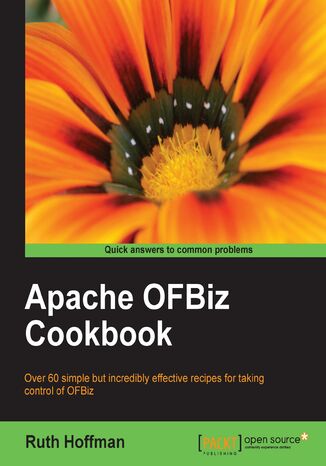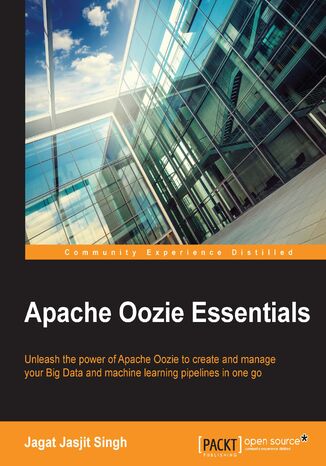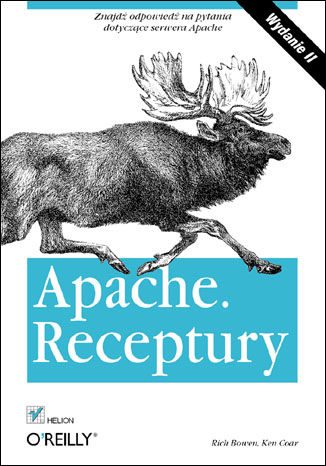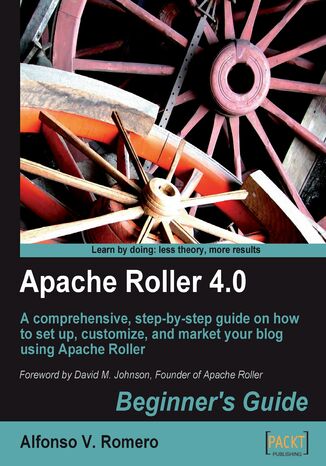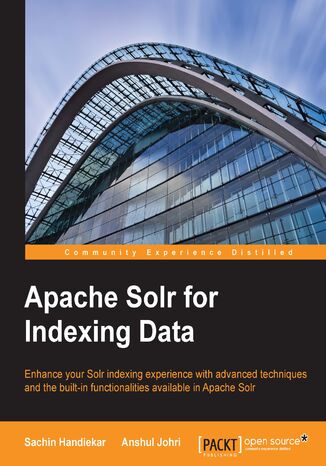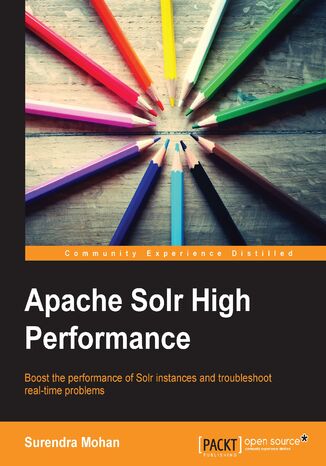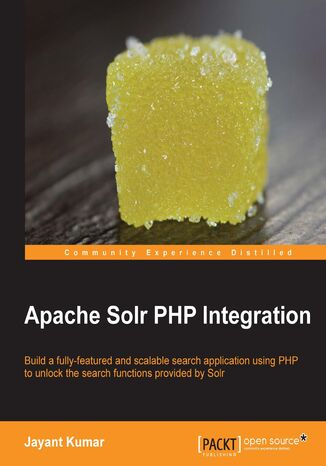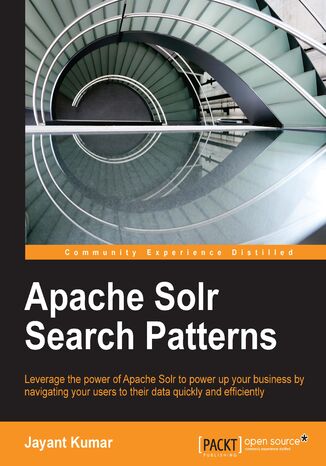Kategorie
Ebooki
-
Biznes i ekonomia
- Bitcoin
- Bizneswoman
- Coaching
- Controlling
- E-biznes
- Ekonomia
- Finanse
- Giełda i inwestycje
- Kompetencje osobiste
- Komputer w biurze
- Komunikacja i negocjacje
- Mała firma
- Marketing
- Motywacja
- Multimedialne szkolenia
- Nieruchomości
- Perswazja i NLP
- Podatki
- Polityka społeczna
- Poradniki
- Prezentacje
- Przywództwo
- Public Relation
- Raporty, analizy
- Sekret
- Social Media
- Sprzedaż
- Start-up
- Twoja kariera
- Zarządzanie
- Zarządzanie projektami
- Zasoby ludzkie (HR)
-
Dla dzieci
-
Dla młodzieży
-
Edukacja
-
Encyklopedie, słowniki
-
E-prasa
- Architektura i wnętrza
- BHP
- Biznes i Ekonomia
- Dom i ogród
- E-Biznes
- Ekonomia i finanse
- Ezoteryka
- Finanse
- Finanse osobiste
- Firma
- Fotografia
- Informatyka
- Kadry i płace
- Kobieca
- Komputery, Excel
- Księgowość
- Kultura i literatura
- Naukowe i akademickie
- Ochrona środowiska
- Opiniotwórcze
- Oświata
- Podatki
- Podróże
- Psychologia
- Religia
- Rolnictwo
- Rynek książki i prasy
- Transport i Spedycja
- Zdrowie i uroda
-
Historia
-
Informatyka
- Aplikacje biurowe
- Bazy danych
- Bioinformatyka
- Biznes IT
- CAD/CAM
- Digital Lifestyle
- DTP
- Elektronika
- Fotografia cyfrowa
- Grafika komputerowa
- Gry
- Hacking
- Hardware
- IT w ekonomii
- Pakiety naukowe
- Podręczniki szkolne
- Podstawy komputera
- Programowanie
- Programowanie mobilne
- Serwery internetowe
- Sieci komputerowe
- Start-up
- Systemy operacyjne
- Sztuczna inteligencja
- Technologia dla dzieci
- Webmasterstwo
-
Inne
-
Języki obce
-
Kultura i sztuka
-
Lektury szkolne
-
Literatura
- Antologie
- Ballada
- Biografie i autobiografie
- Dla dorosłych
- Dramat
- Dzienniki, pamiętniki, listy
- Epos, epopeja
- Esej
- Fantastyka i science-fiction
- Felietony
- Fikcja
- Humor, satyra
- Inne
- Klasyczna
- Kryminał
- Literatura faktu
- Literatura piękna
- Mity i legendy
- Nobliści
- Nowele
- Obyczajowa
- Okultyzm i magia
- Opowiadania
- Pamiętniki
- Podróże
- Poemat
- Poezja
- Polityka
- Popularnonaukowa
- Powieść
- Powieść historyczna
- Proza
- Przygodowa
- Publicystyka
- Reportaż
- Romans i literatura obyczajowa
- Sensacja
- Thriller, Horror
- Wywiady i wspomnienia
-
Nauki przyrodnicze
-
Nauki społeczne
-
Podręczniki szkolne
-
Popularnonaukowe i akademickie
- Archeologia
- Bibliotekoznawstwo
- Filmoznawstwo
- Filologia
- Filologia polska
- Filozofia
- Finanse i bankowość
- Geografia
- Gospodarka
- Handel. Gospodarka światowa
- Historia i archeologia
- Historia sztuki i architektury
- Kulturoznawstwo
- Lingwistyka
- Literaturoznawstwo
- Logistyka
- Matematyka
- Medycyna
- Nauki humanistyczne
- Pedagogika
- Pomoce naukowe
- Popularnonaukowa
- Pozostałe
- Psychologia
- Socjologia
- Teatrologia
- Teologia
- Teorie i nauki ekonomiczne
- Transport i spedycja
- Wychowanie fizyczne
- Zarządzanie i marketing
-
Poradniki
-
Poradniki do gier
-
Poradniki zawodowe i specjalistyczne
-
Prawo
- BHP
- Historia
- Kodeks drogowy. Prawo jazdy
- Nauki prawne
- Ochrona zdrowia
- Ogólne, kompendium wiedzy
- Podręczniki akademickie
- Pozostałe
- Prawo budowlane i lokalowe
- Prawo cywilne
- Prawo finansowe
- Prawo gospodarcze
- Prawo gospodarcze i handlowe
- Prawo karne
- Prawo karne. Przestępstwa karne. Kryminologia
- Prawo międzynarodowe
- Prawo międzynarodowe i zagraniczne
- Prawo ochrony zdrowia
- Prawo oświatowe
- Prawo podatkowe
- Prawo pracy i ubezpieczeń społecznych
- Prawo publiczne, konstytucyjne i administracyjne
- Prawo rodzinne i opiekuńcze
- Prawo rolne
- Prawo socjalne, prawo pracy
- Prawo Unii Europejskiej
- Przemysł
- Rolne i ochrona środowiska
- Słowniki i encyklopedie
- Zamówienia publiczne
- Zarządzanie
-
Przewodniki i podróże
- Afryka
- Albumy
- Ameryka Południowa
- Ameryka Środkowa i Północna
- Australia, Nowa Zelandia, Oceania
- Austria
- Azja
- Bałkany
- Bliski Wschód
- Bułgaria
- Chiny
- Chorwacja
- Czechy
- Dania
- Egipt
- Estonia
- Europa
- Francja
- Góry
- Grecja
- Hiszpania
- Holandia
- Islandia
- Litwa
- Łotwa
- Mapy, Plany miast, Atlasy
- Miniprzewodniki
- Niemcy
- Norwegia
- Podróże aktywne
- Polska
- Portugalia
- Pozostałe
- Przewodniki po hotelach i restauracjach
- Rosja
- Rumunia
- Słowacja
- Słowenia
- Szwajcaria
- Szwecja
- Świat
- Turcja
- Ukraina
- Węgry
- Wielka Brytania
- Włochy
-
Psychologia
- Filozofie życiowe
- Kompetencje psychospołeczne
- Komunikacja międzyludzka
- Mindfulness
- Ogólne
- Perswazja i NLP
- Psychologia akademicka
- Psychologia duszy i umysłu
- Psychologia pracy
- Relacje i związki
- Rodzicielstwo i psychologia dziecka
- Rozwiązywanie problemów
- Rozwój intelektualny
- Sekret
- Seksualność
- Uwodzenie
- Wygląd i wizerunek
- Życiowe filozofie
-
Religia
-
Sport, fitness, diety
-
Technika i mechanika
Audiobooki
-
Biznes i ekonomia
- Bitcoin
- Bizneswoman
- Coaching
- Controlling
- E-biznes
- Ekonomia
- Finanse
- Giełda i inwestycje
- Kompetencje osobiste
- Komunikacja i negocjacje
- Mała firma
- Marketing
- Motywacja
- Nieruchomości
- Perswazja i NLP
- Podatki
- Polityka społeczna
- Poradniki
- Prezentacje
- Przywództwo
- Public Relation
- Sekret
- Social Media
- Sprzedaż
- Start-up
- Twoja kariera
- Zarządzanie
- Zarządzanie projektami
- Zasoby ludzkie (HR)
-
Dla dzieci
-
Dla młodzieży
-
Edukacja
-
Encyklopedie, słowniki
-
E-prasa
-
Historia
-
Informatyka
-
Inne
-
Języki obce
-
Kultura i sztuka
-
Lektury szkolne
-
Literatura
- Antologie
- Ballada
- Biografie i autobiografie
- Dla dorosłych
- Dramat
- Dzienniki, pamiętniki, listy
- Epos, epopeja
- Esej
- Fantastyka i science-fiction
- Felietony
- Fikcja
- Humor, satyra
- Inne
- Klasyczna
- Kryminał
- Literatura faktu
- Literatura piękna
- Mity i legendy
- Nobliści
- Nowele
- Obyczajowa
- Okultyzm i magia
- Opowiadania
- Pamiętniki
- Podróże
- Poezja
- Polityka
- Popularnonaukowa
- Powieść
- Powieść historyczna
- Proza
- Przygodowa
- Publicystyka
- Reportaż
- Romans i literatura obyczajowa
- Sensacja
- Thriller, Horror
- Wywiady i wspomnienia
-
Nauki przyrodnicze
-
Nauki społeczne
-
Popularnonaukowe i akademickie
-
Poradniki
-
Poradniki zawodowe i specjalistyczne
-
Prawo
-
Przewodniki i podróże
-
Psychologia
- Filozofie życiowe
- Komunikacja międzyludzka
- Mindfulness
- Ogólne
- Perswazja i NLP
- Psychologia akademicka
- Psychologia duszy i umysłu
- Psychologia pracy
- Relacje i związki
- Rodzicielstwo i psychologia dziecka
- Rozwiązywanie problemów
- Rozwój intelektualny
- Sekret
- Seksualność
- Uwodzenie
- Wygląd i wizerunek
- Życiowe filozofie
-
Religia
-
Sport, fitness, diety
-
Technika i mechanika
Kursy video
-
Bazy danych
-
Big Data
-
Biznes, ekonomia i marketing
-
Cyberbezpieczeństwo
-
Data Science
-
DevOps
-
Dla dzieci
-
Elektronika
-
Grafika/Wideo/CAX
-
Gry
-
Microsoft Office
-
Narzędzia programistyczne
-
Programowanie
-
Rozwój osobisty
-
Sieci komputerowe
-
Systemy operacyjne
-
Testowanie oprogramowania
-
Urządzenia mobilne
-
UX/UI
-
Web development
-
Zarządzanie
Podcasty
Apache OfBiz Cookbook. Over 60 simple but incredibly effective recipes for taking control of OFBiz
Ruth Hoffman, Brian Fitzpatrick
Apache Open For Business (OFBiz) is an enterprise resource planning (ERP) system that provides a common data model and an extensive set of business processes. But without proper guidance on developing performance-critical applications, it is easy to make the wrong design and technology decisions. The power and promise of Apache OFBiz is comprehensively revealed in a collection of self-contained, quick, practical recipes in this Cookbook.This book covers a range of topics from initial system setup to web application and HTML page creation, Java development, and data maintenance tasks. Focusing on a series of the most commonly performed OFBiz tasks, it provides clear, cogent, and easy-to-follow instructions designed to make the most of your OFBiz experience.Let this book be your guide to enhancing your OFBiz productivity by saving you valuable time. Written specifically to give clear and straightforward answers to the most commonly asked OFBiz questions, this compendium of OFBiz recipes will show you everything you need to know to get things done in OFBiz.Whether you are new to OFBiz or an old pro, you are sure to find many useful hints and handy tips here. Topics range from getting started to configuration and system setup, security and database management through the final stages of developing and testing new OFBiz applications.
As more and more organizations are discovering the use of big data analytics, interest in platforms that provide storage, computation, and analytic capabilities is booming exponentially. This calls for data management. Hadoop caters to this need. Oozie fulfils this necessity for a scheduler for a Hadoop job by acting as a cron to better analyze data. Apache Oozie Essentials starts off with the basics right from installing and configuring Oozie from source code on your Hadoop cluster to managing your complex clusters. You will learn how to create data ingestion and machine learning workflows.This book is sprinkled with the examples and exercises to help you take your big data learning to the next level. You will discover how to write workflows to run your MapReduce, Pig ,Hive, and Sqoop scripts and schedule them to run at a specific time or for a specific business requirement using a coordinator. This book has engaging real-life exercises and examples to get you in the thick of things. Lastly, you’ll get a grip of how to embed Spark jobs, which can be used to run your machine learning models on Hadoop.By the end of the book, you will have a good knowledge of Apache Oozie. You will be capable of using Oozie to handle large Hadoop workflows and even improve the availability of your Hadoop environment.
Czy wiesz, jaki serwer HTTP jest najpopularniejszy w sieci? Właśnie tak, jest to Apache! W lipcu 2008 roku jego udział w rynku wynosił blisko 50% (według Netcraft). Historia tego serwera sięga roku 1995, kiedy ukazała się jego pierwsza oficjalna wersja, oznaczona numerem 0.6.2. Cechy, które zadecydowały o sukcesie tego rozwiązania, to bezpieczeństwo, skalowalność, wielowątkowość i obsługa różnorodnych języków skryptowych. Dzięki książce "Apache. Receptury" zapoznasz się z gotowymi przepisami na rozwiązanie ciekawych, specyficznych oraz intrygujących problemów. Nauczysz się instalować serwer z różnych źródeł oraz na różnych platformach. Dowiesz się, w jaki sposób zwiększyć jego bezpieczeństwo, jak uruchomić serwery wirtualne oraz poprawić wydajność Apache. Autorzy książki pokażą Ci, jak uruchomić obsługę języków skryptowych, tak aby serwowane strony stały się dynamiczne. Cała wiedza zostanie przedstawiona w sprawdzony w tej serii sposób: problem - rozwiązanie - analiza. Sposoby instalacji serwera Apache Dodawanie funkcjonalności dzięki modułom Możliwości rejestracji zdarzeń Konfiguracja serwerów wirtualnych Wykorzystanie aliasów, przekierowań oraz przepisań (mod_rewrite) Zarządzanie dostępem do serwowanych zasobów Bezpieczeństwo serwera Apache Wykorzystanie szyfrowanej transmisji - protokół SSL Zapewnienie wydajności Wykorzystanie języków skryptowych Oto książka z najlepszymi przepisami na Apache!
Alfonso V. Romero, Brian Fitzpatrick, Alfonso Vidal Romero
Apache Roller enables you to build a fully-featured, multi-user blog server apt for all kinds of blogging sites. It is an ideal tool to create your own blogging network with unlimited users and blogs, forums, photo galleries, and more! While it is exciting to have a list of interesting features it can offer you, it might be a little difficult to get started with it by your self.This book will teach you how to get started with Apache Roller and make the most of all its features using step-by-step, detailed instructions. You will learn how to establish your internet presence with an Apache Roller blog and use the latest web tools to enhance your posts and attract visitors. You will also learn how to promote your blog on popular social bookmarking services and customize it to suit your need.This hands-on and practical book introduces you to Apache Roller. Starting off with the configuration and installation of your own blog, you'll then quickly learn how to add interesting content to your blog with the help of plenty of examples. You'll also learn how to change your blog's visual appearance with the help of Roller themes and templates and how to create a community of blogs for you and your colleagues or friends in your Apache Roller blog server. The book also looks at ways you can manage your community, and keep your site safe and secure, ensuring that it is a spam-free, enjoyable community for your users.
Anshul Johri, Sachin Handiekar
Apache Solr is a widely used, open source enterprise search server that delivers powerful indexing and searching features. These features help fetch relevant information from various sources and documentation. Solr also combines with other open source tools such as Apache Tika and Apache Nutch to provide more powerful features.This fast-paced guide starts by helping you set up Solr and get acquainted with its basic building blocks, to give you a better understanding of Solr indexing. You’ll quickly move on to indexing text and boosting the indexing time. Next, you’ll focus on basic indexing techniques, various index handlers designed to modify documents, and indexing a structured data source through Data Import Handler.Moving on, you will learn techniques to perform real-time indexing and atomic updates, as well as more advanced indexing techniques such as de-duplication. Later on, we’ll help you set up a cluster of Solr servers that combine fault tolerance and high availability. You will also gain insights into working scenarios of different aspects of Solr and how to use Solr with e-commerce data.By the end of the book, you will be competent and confident working with indexing and will have a good knowledge base to efficiently program elements.
The Search tool is a very powerful for any website. No matter what type of website, the search tool helps visitors find what they are looking for using key words and narrow down the results using facets. Solr is the popular, blazing fast, open source enterprise search platform from the Apache Lucene project. It is highly scalable, providing distributed search and index replication, and it powers the search and navigation features of many of the world's largest websites.This book is a practical, hands-on, end-to-end guide that provides you with all the tools required to build a fully-featured search application using Apache Solr and PHP. The book contains practical examples and step-by-step instructions.Starting off with the basics of installing Apache Solr and integrating it with Php, the book then proceeds to explore the features provided by Solr to improve searches using Php. You will learn how to build and maintain a Solr index using Php, discover the query modes available with Solr, and how to use them to tune the Solr queries to retrieve relevant results. You will look at how to build and use facets in your search, how to tune and use fast result highlighting, and how to build a spell check and auto complete feature using Solr. You will finish by learning some of the advanced concepts required to runa large-scale enterprise level search infrastructure.

